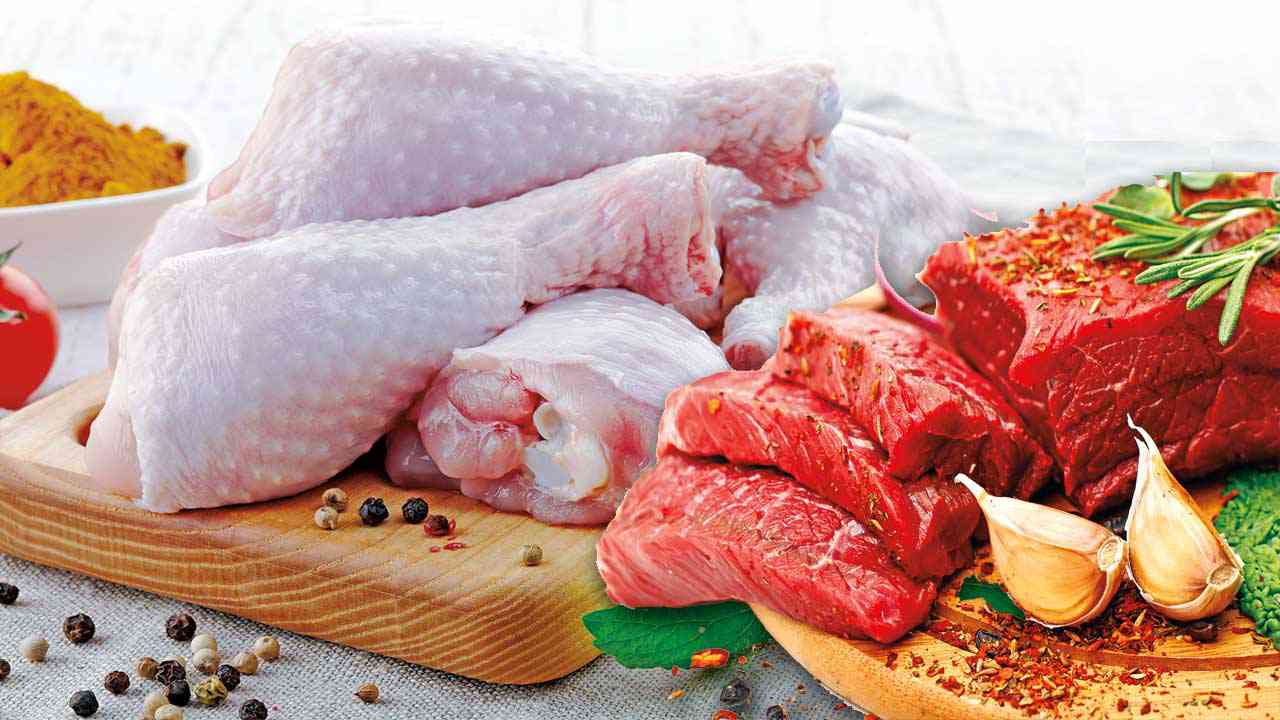
Mauritius is currently facing a series of food-related crisis. In a little under three months, the country has witnessed the outbreak of two epidemics: Foot and Mouth disease and Salmonella. Added to that, some pigs were found dead in two different regions with little information as to what caused their death. These successive scares have given rise to a psychosis within the population.
A few weeks ago, the population was afraid to eat meat, be it beef, lamb or goat. Then came the salmonella outbreak which affected nearly 10% of the country’s poultry farms. Chicken and eggs were suddenly ejected from plates. However, since this week, news has broken that vegetables might be at risk of being affected with salmonella. Confusion has now spread like wildfire across the island. The question is: to eat or not to eat or what to eat. 300 000 doses of vaccine against Foot and Mouth Disease was given by the European Union to the government in order to halt the outbreak.
The situation pertaining to foot and mouth disease has been stable. Currently, the uninfected animals are being vaccinated and compensation is being given to the 54 farmers who have been affected by this epidemic. So far, 1,625 animals have been slaughtered. The vaccination campaign is ongoing. Till now, 11,883 goats and sheep, and 11,089 pigs have been vaccinated. Accordingly, the government is willing to import meat by air cargo. However, necessary precautions must be taken. Under the Food Act, butchers are not authorised to market refrigerated meat.
There is now a temporary ban on the import of animals and of meat from Rodrigues because it has been established that the outbreak in Mauritius originated from there. The situation has been worsening to such an extent that the Rodrigues Regional Assembly has placed the whole island under quarantine.
Even if the situation is under control, the scare regarding meat is still present. It is good to know that that there are currently no scientific studies showing that eating meat from an infected animal has a repercussion on human health. If you are still hesitant to eat meat, then try these substitutes: broccoli, soy beans, cheese, milk or lentils. In order to get the adequate amount of protein, a person should mix various lentils together or mix lentils with rice or whole wheat. There is also a new product called Quinoa available on the market. It is costly but it is a good source of protein.
Salmonella outbreak freaks out consumers
A salmonella outbreak is now affecting chicken farms around the island. However, according to the authorities, only 10% of the country’s poultry stock has been affected. The Ministry of Agroindustry had to slaughter 70,000 chickens and destroy more than 40,000 eggs due to salmonella. It should be noted that 65,000 chickens are consumed daily. Currently, the Ministry is trying to determine the number of chicks infected and who have been killed by this disease. On Thursday, Deputy Chief Agricultural Officer Balraj Lutchmeea announced that sanctions will be taken against farmers who use chicken manure as a natural fertiliser in their plantations.
The salmonella bacteria has an effect on human health and it is considered as one of the most common food-borne infections. Apart from direct contamination from eating chicken, contamination through vegetables is also present if chicken manure infected with salmonella has been used as natural fertiliser during plantations. Various growers especially in the central plateau use manure in their plantations. The Principle Extension Officer at the Food and Agricultural Research and Extension Institute, Prakash Goolaub, states that contamination through vegetable is indeed present at the moment. The research institute on agriculture in Mauritius is collecting manure from contaminated farms to destroy them in order to avoid the risk of transmission to other farms and to the plantations.
What to know about salmonella infections?
When salmonella bacteria are ingested, they pass through a person’s stomach and colonise the small and large intestine. There, the bacteria invade the intestinal mucosa and proliferate. The bacteria can invade the lymphoid tissues of the gastrointestinal tract and spread to the bloodstream. Children are at the highest risk of contracting salmonella infection. Young children, older adults, and people with weakened immune systems are the most likely to have severe infections. The symptoms include:
- diarrhoea (sometime blood-tinged),
- abdominal cramps,
- fever, and
- occasionally nausea and vomiting.
What to eat and how to eat?
Nutritionist Amiirah Hossenbux, from Apollo Bramwell Hospital, explains that the public must be cautious when buying chicken and eggs as salmonella can affect their health. She encourages the public to eat fish and avoid pastries. “Many pastries are made of eggs and often there are pastries that are kept outside for a long period of time, in this case, it is better to avoid them. There is no problem if an individual eats fish every day unless an individual has allergies. Fish, including oily fish, are very good sources of protein. Children, pregnant women and old persons need to have good sources of protein. If they are not willing to eat meat or chicken, they can include soya or pulses in their meals.”
Concerning the recent fear about contaminated vegetables, she advises: “Soak all vegetables in water for around one hour before cooking. For the time being, it is better to eat cooked vegetables and try to avoid salad. If a person is willing to eat salads, it is advisable to put the vegetables in boiling water and then eat.”
High demand and price of fish products
Since the outbreak of the epidemic, the consumption of fish has increased. There is a high demand for fish and a low supply because of which the price tend fluctuate between Rs 75 to Rs 80 per kilo. Shortage of fish will soon be solved as we are approaching summer.
Precautionary measures to be taken
Separate raw and cooked foods
Separate raw meat, poultry and raw seafood from other foods. Do not use the same equipment, utensils such as knives and chopping boards for ready-made food and raw food. Store food in closed containers to avoid contact between raw and ready to eat foods.
Cook food properly
Cook food, especially meat, poultry, eggs and fish. Reheat cooked food.
Cleanliness
Wash your hands with running water and soap before touching food, wash your hands frequently while you are cooking, before eating and after using the toilet. Wash and sanitise all surfaces and materials in contact with food.
Keep food at appropriate temperatures
Do not leave cooked food more than two hours at room temperature. Refrigerate promptly all food and perishables preferably less than 5°C. Do not throw frozen food at room temperature.
Use water and products which are safe
Choose fresh and healthy foods. Choose processed foods that are less risky, such as pasteurized milk. Wash fruits and vegetables, especially if eaten raw.
 J'aime
J'aime















